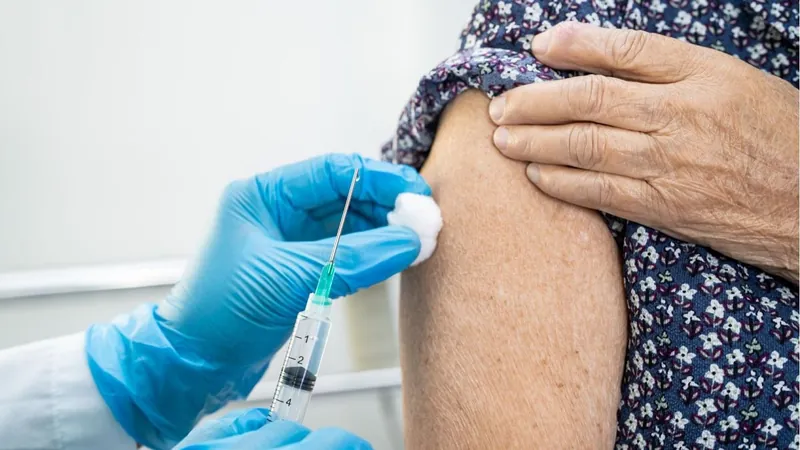
Shingles Vaccine Linked to Lower Risk of Heart Attack and Stroke, Reveals New Study
2025-08-29
Author: Wei Ling
Groundbreaking Findings on Shingles Vaccine
A new analysis suggests that getting the shingles vaccine might do more than just protect you from a painful rash—it could also significantly reduce your risk of heart-related issues like heart attacks and strokes.
Study Details Reveal Eye-Opening Statistics
Researchers delved into data from 19 previous studies and uncovered that adults vaccinated against herpes zoster, commonly known as shingles, experienced an impressive 18% lower risk of serious cardiovascular events. For those aged 50 and above, the reduction in risk was slightly lower at 16%.
Funding and Peer Review Concerns
It's important to note that the study was funded by GSK, the pharmaceutical giant behind one of the shingles vaccines, and its findings have not yet undergone peer review. Dr. Charles Williams, a key author of the study and GSK’s global associate medical director for vaccines, expressed that the results are "encouraging," hinting at a hopeful link between shingles vaccination and improved heart health.
Understanding Shingles and Its Implications
Shingles, triggered by the varicella-zoster virus (the same virus that causes chickenpox), manifests as a painful rash of fluid-filled blisters. Previous research has indicated that shingles might increase the risk of heart attack and stroke due to inflammation that can damage blood vessels, raising questions about whether vaccination might mitigate these risks.
Types of Vaccines and Their Efficacy
Currently, there are two types of shingles vaccines in use: the recombinant herpes zoster vaccine (RZV) and the live attenuated zoster vaccine (ZVL). Notably, the research indicated that vaccinated individuals were less prone to cardiovascular complications regardless of which vaccine they received.
Cautious Optimism for Future Research
However, Dr. Williams acknowledged some limitations in the analysis, primarily that most of the data stemmed from observational studies, which do not definitively prove a causal link between the vaccine and reduced heart risks. He calls for further research to clarify whether this correlation can be definitively attributed to the herpes zoster vaccination.
Looking Ahead: Other Potential Benefits of Shingles Vaccination
This study marks a significant step in exploring the broader health benefits of shingles vaccination beyond its primary purpose of preventing infection. Earlier this year, independent studies hinted that the vaccine might also contribute to a reduced risk of dementia—a potential game-changer for public health.
What's Next?
The findings will be presented at the upcoming 2025 European Society of Cardiology Congress in Madrid this weekend, sparking interest in what could be a pivotal conversation about public health and the expansive benefits of vaccines.

 Brasil (PT)
Brasil (PT)
 Canada (EN)
Canada (EN)
 Chile (ES)
Chile (ES)
 Česko (CS)
Česko (CS)
 대한민국 (KO)
대한민국 (KO)
 España (ES)
España (ES)
 France (FR)
France (FR)
 Hong Kong (EN)
Hong Kong (EN)
 Italia (IT)
Italia (IT)
 日本 (JA)
日本 (JA)
 Magyarország (HU)
Magyarország (HU)
 Norge (NO)
Norge (NO)
 Polska (PL)
Polska (PL)
 Schweiz (DE)
Schweiz (DE)
 Singapore (EN)
Singapore (EN)
 Sverige (SV)
Sverige (SV)
 Suomi (FI)
Suomi (FI)
 Türkiye (TR)
Türkiye (TR)
 الإمارات العربية المتحدة (AR)
الإمارات العربية المتحدة (AR)